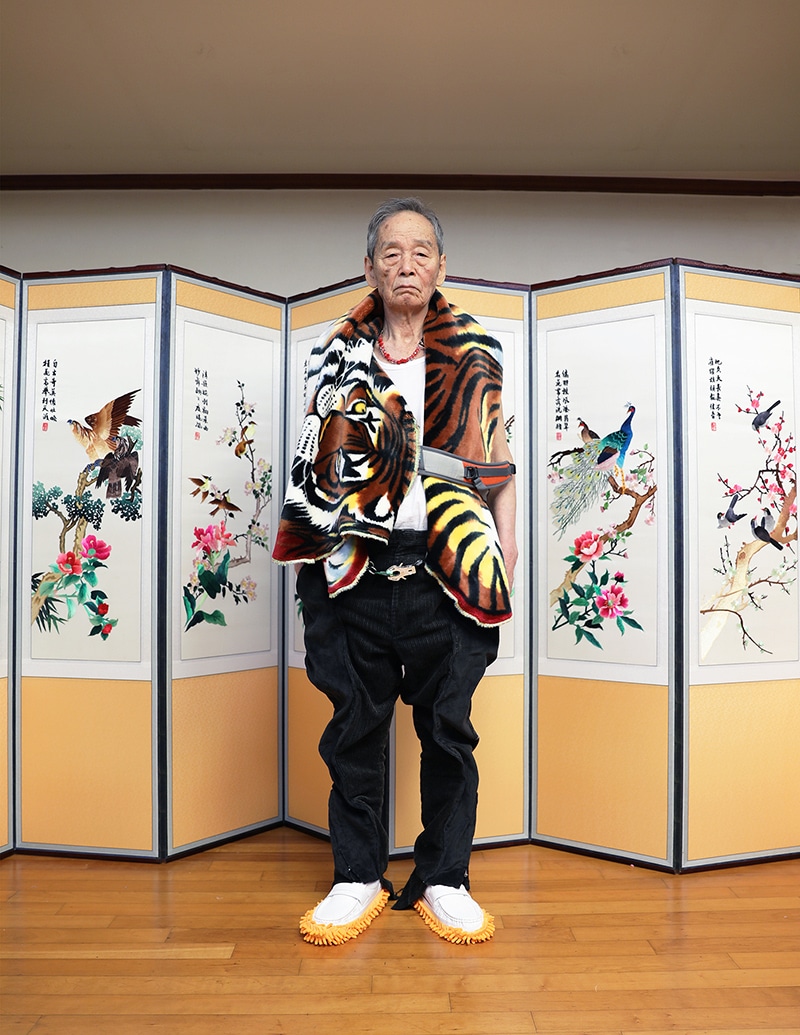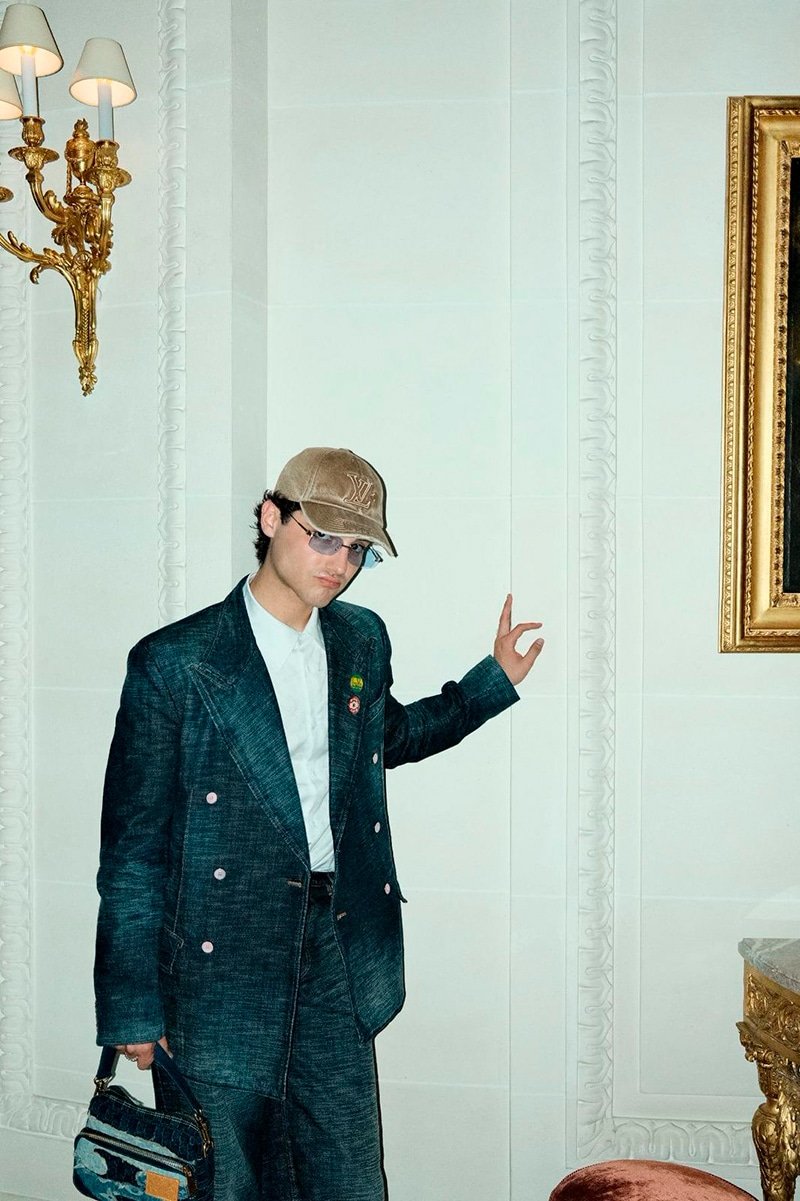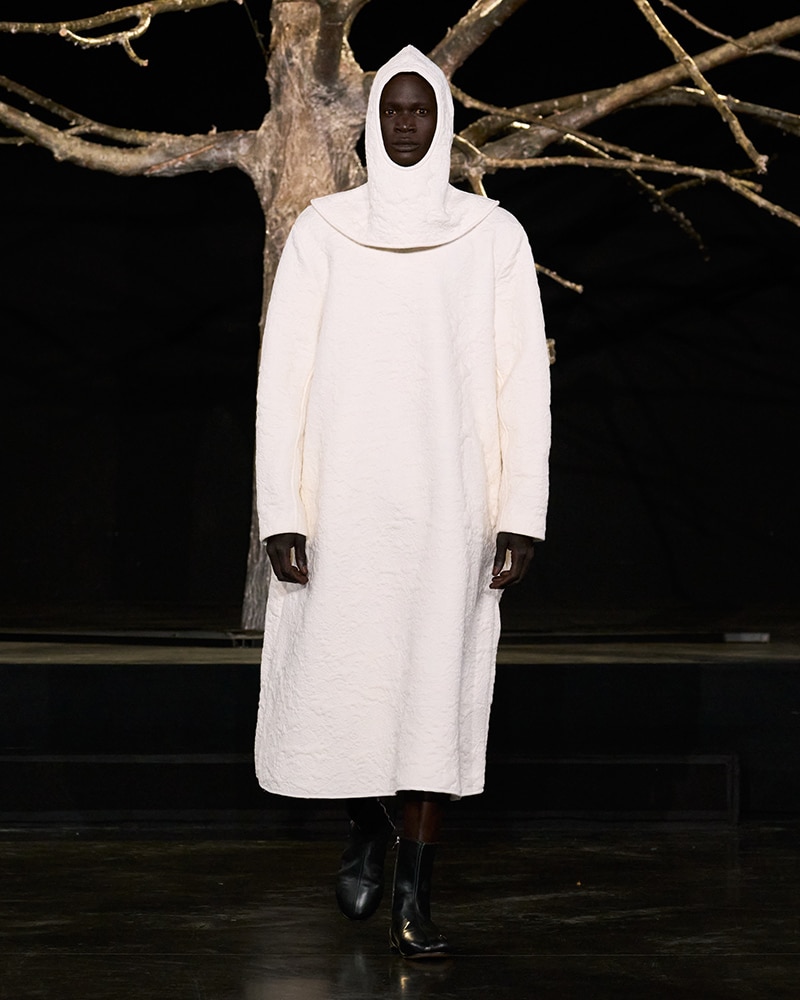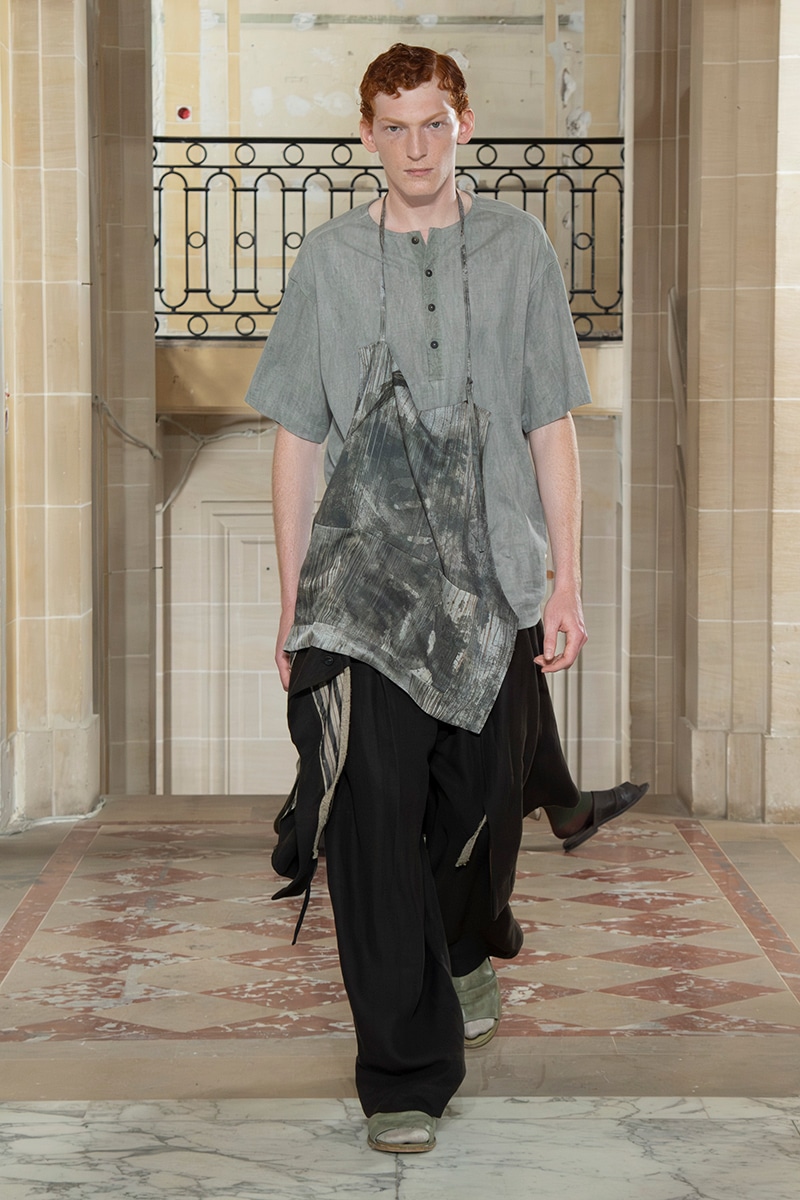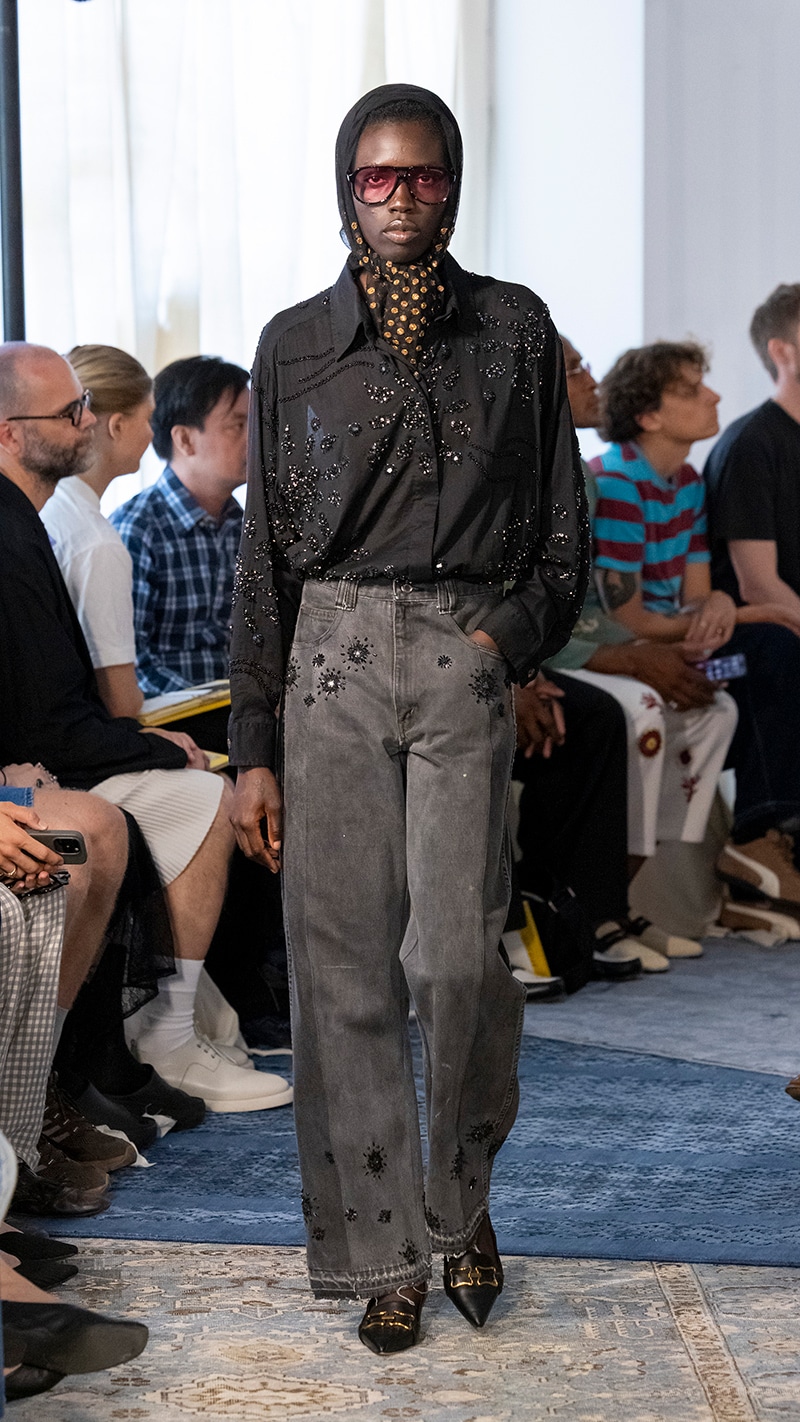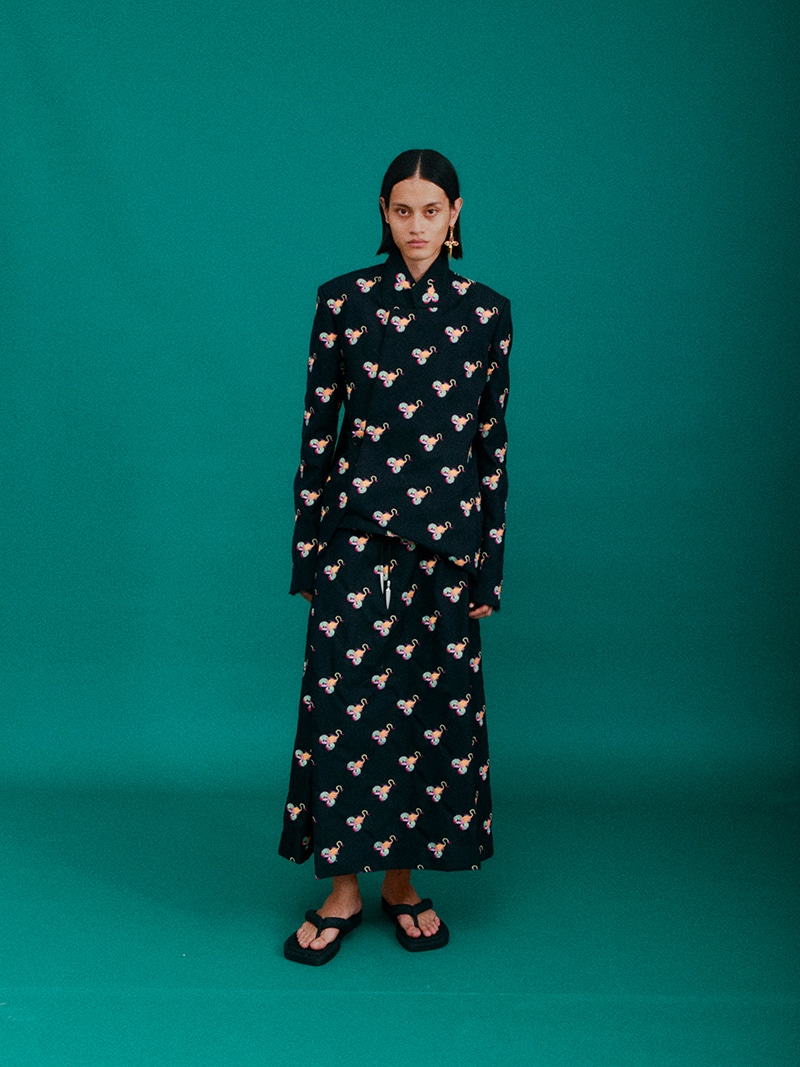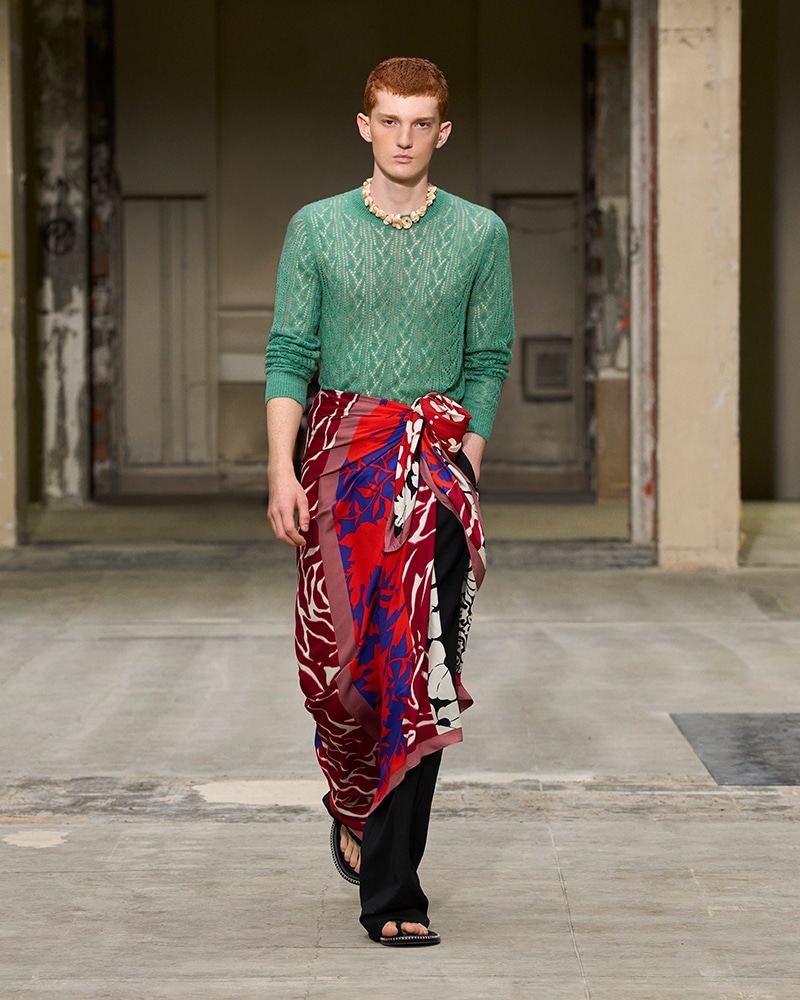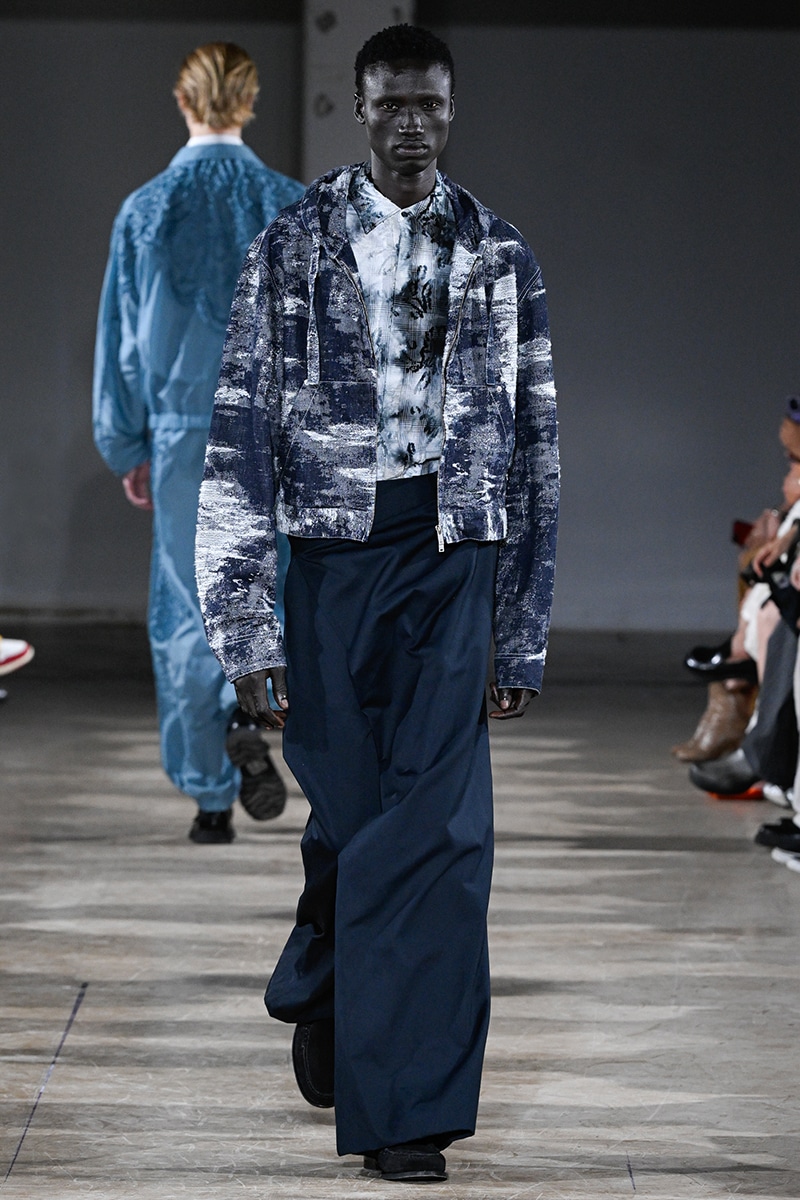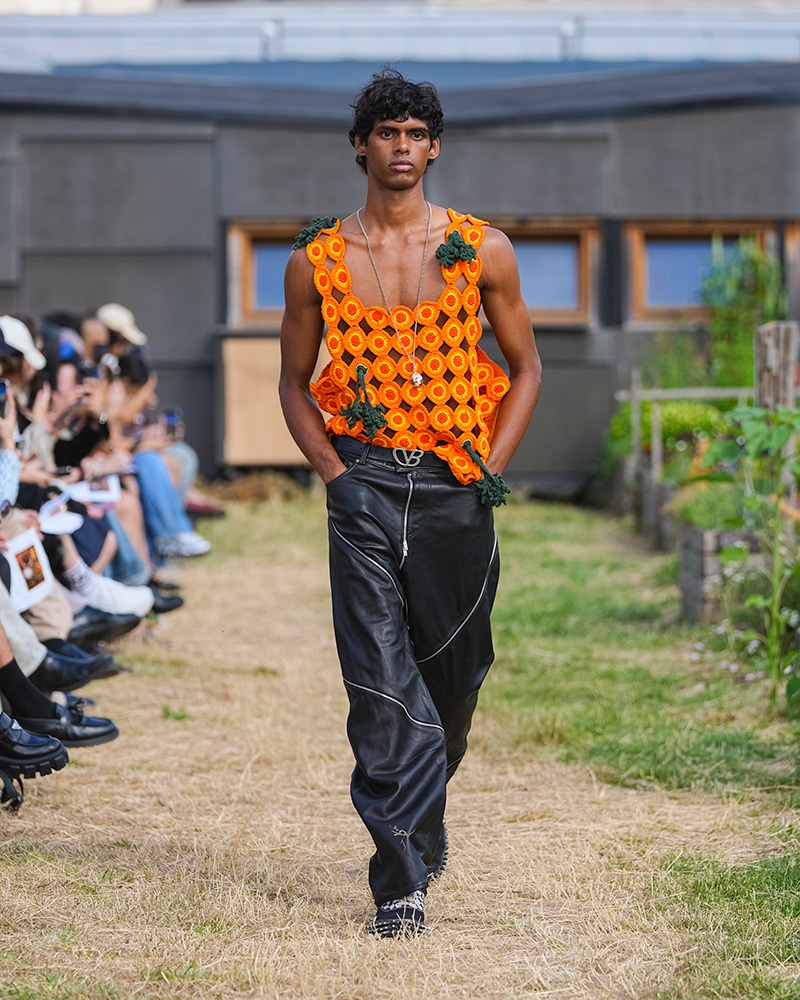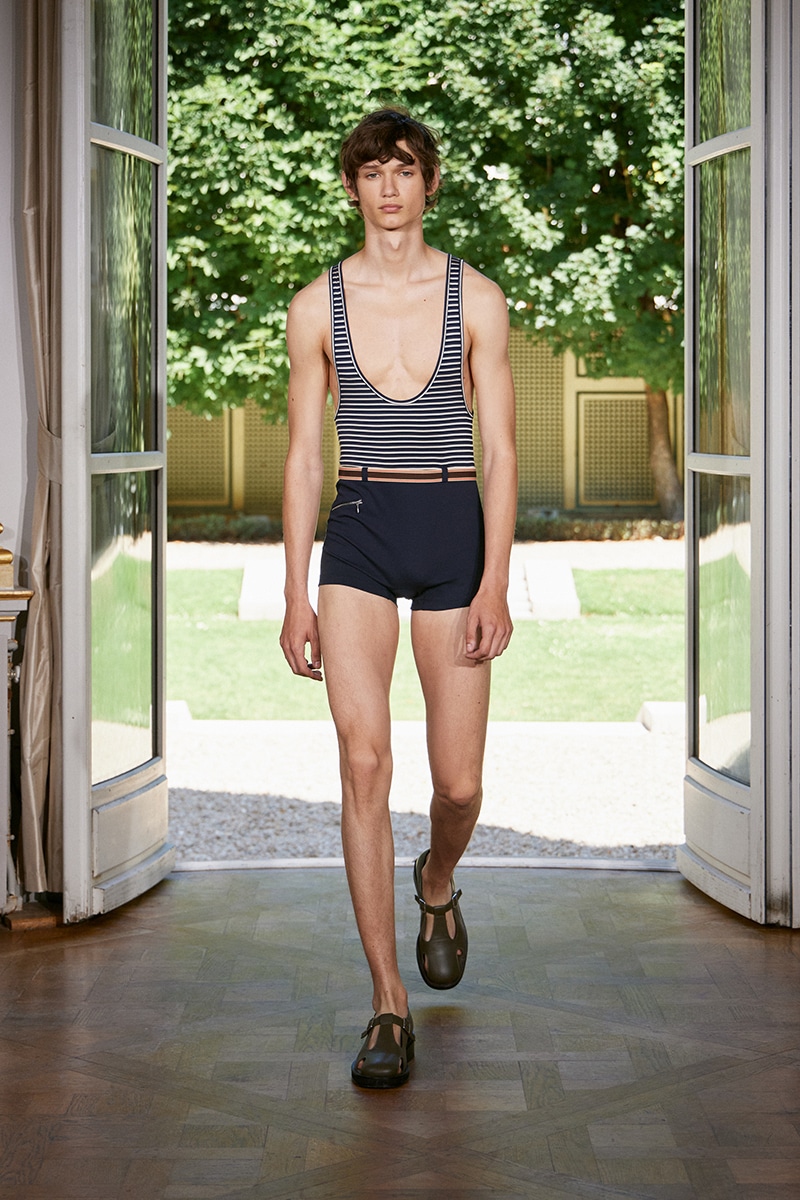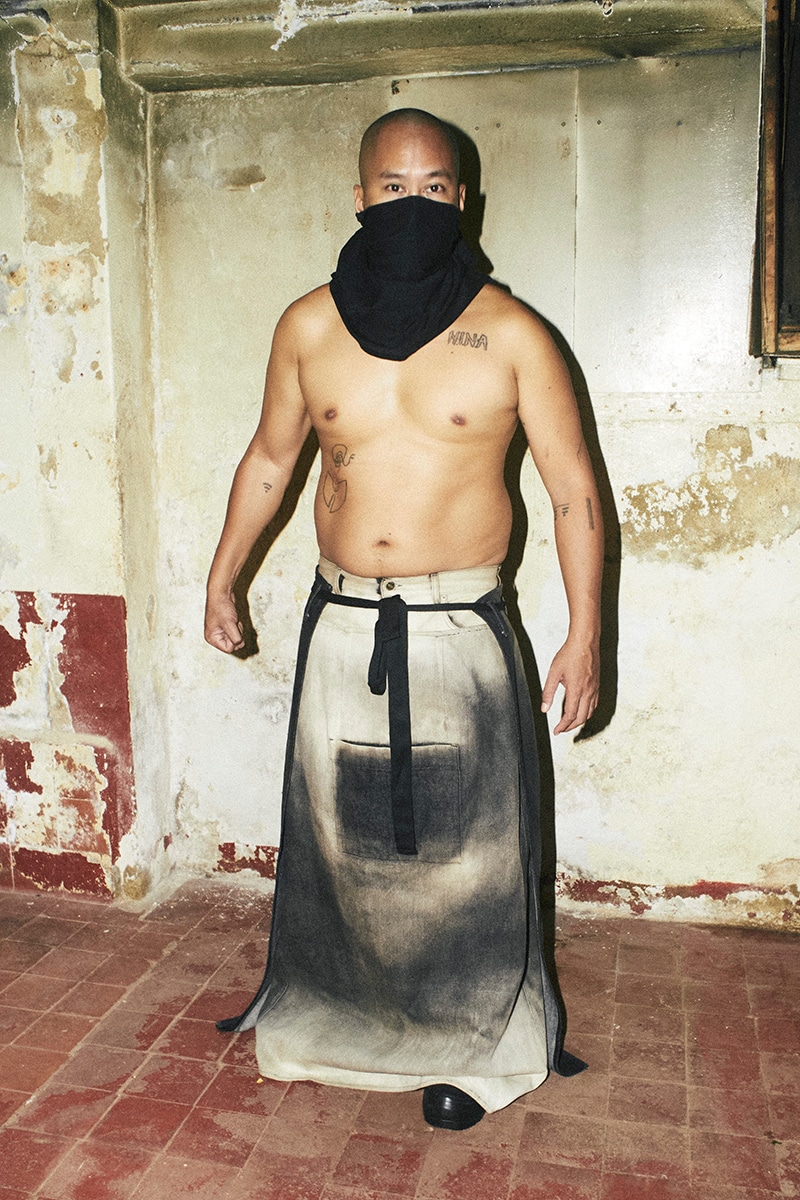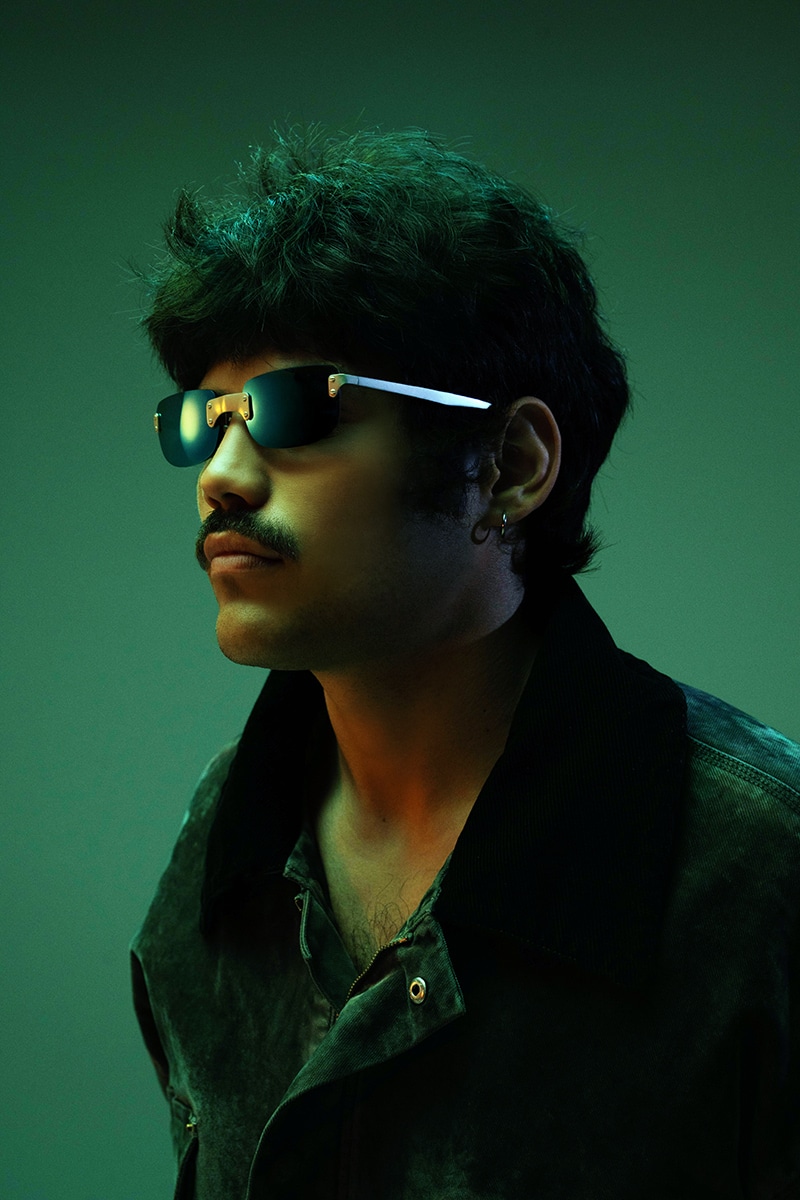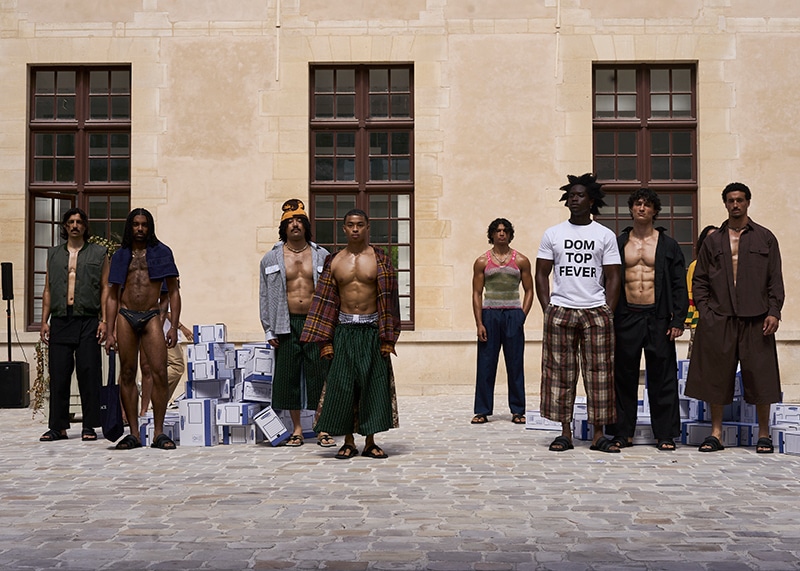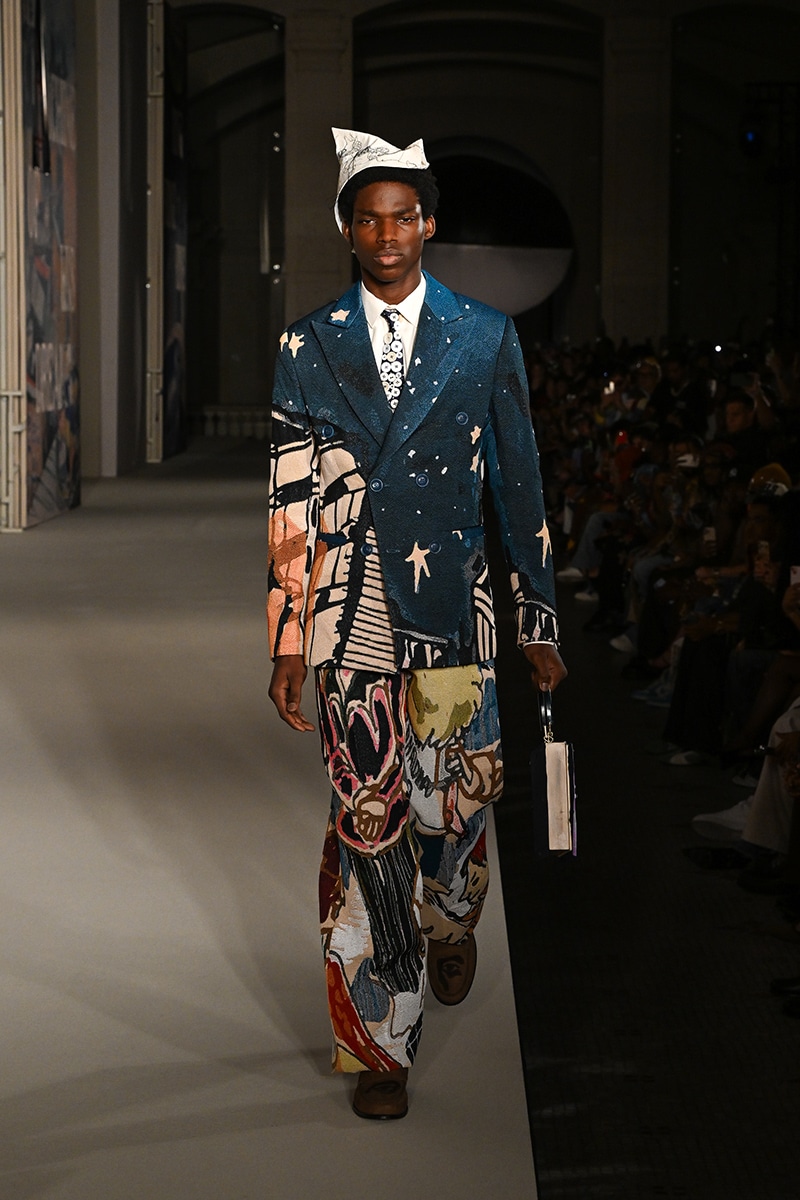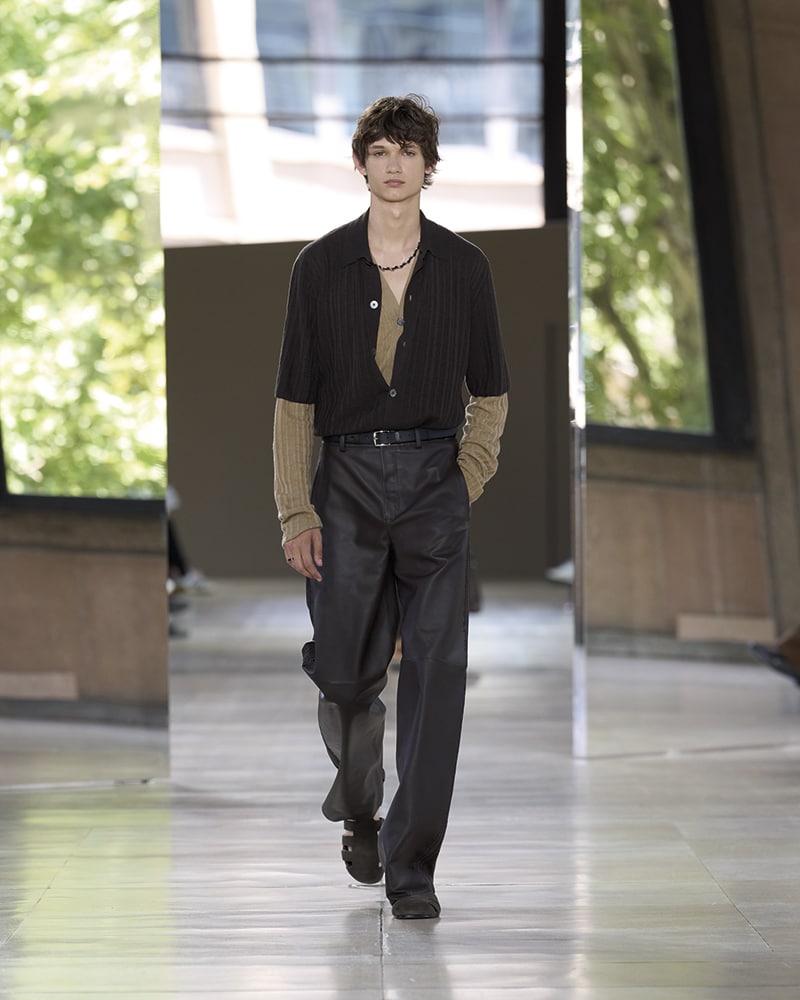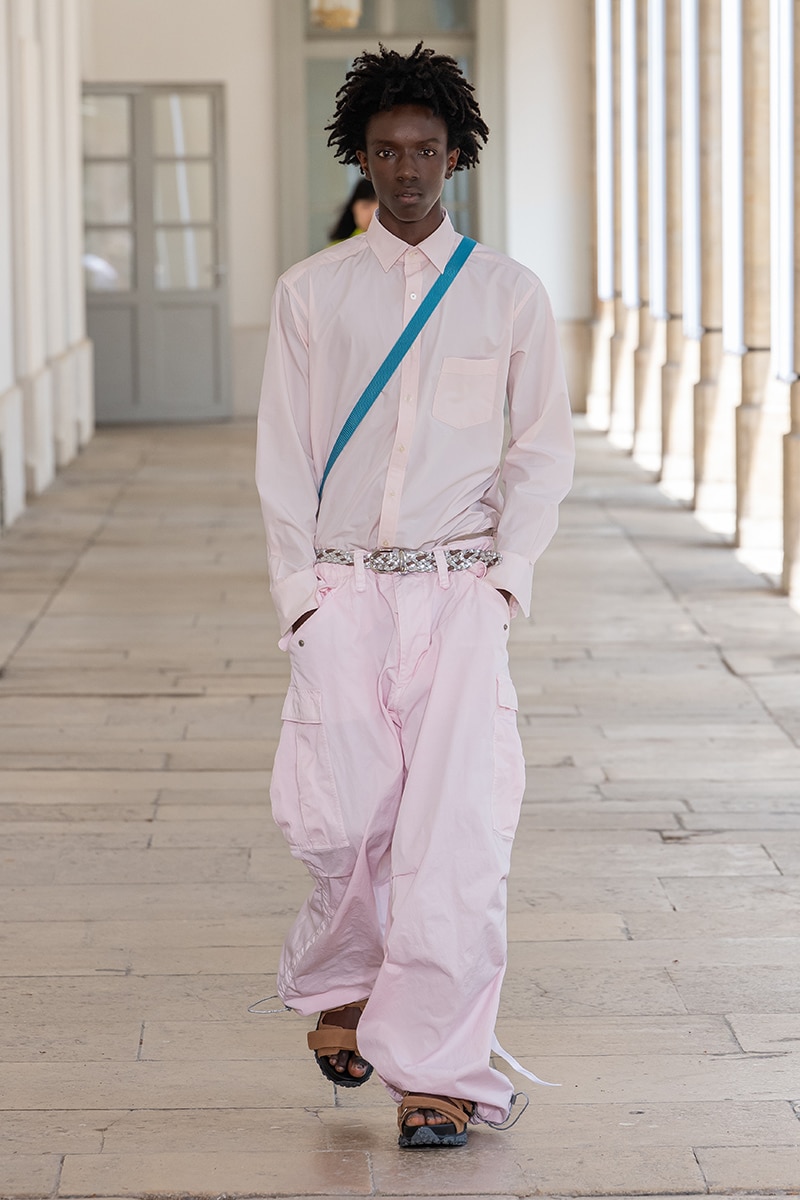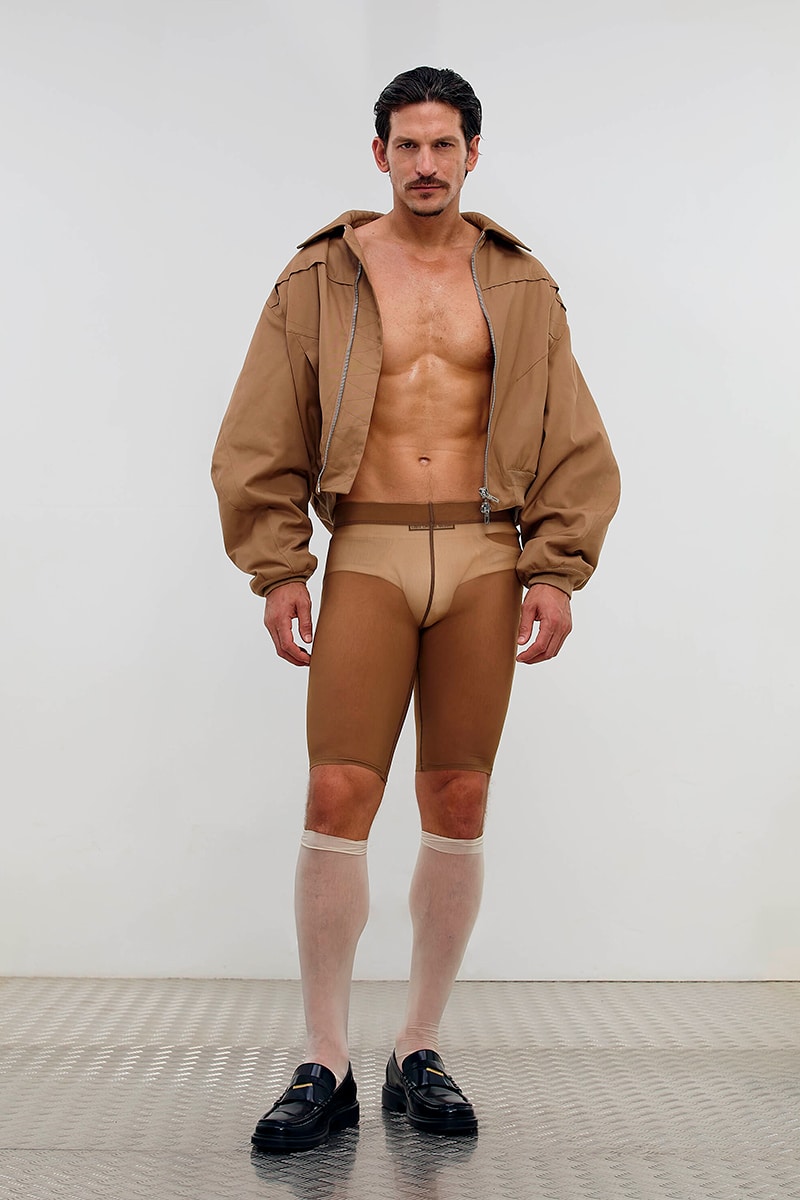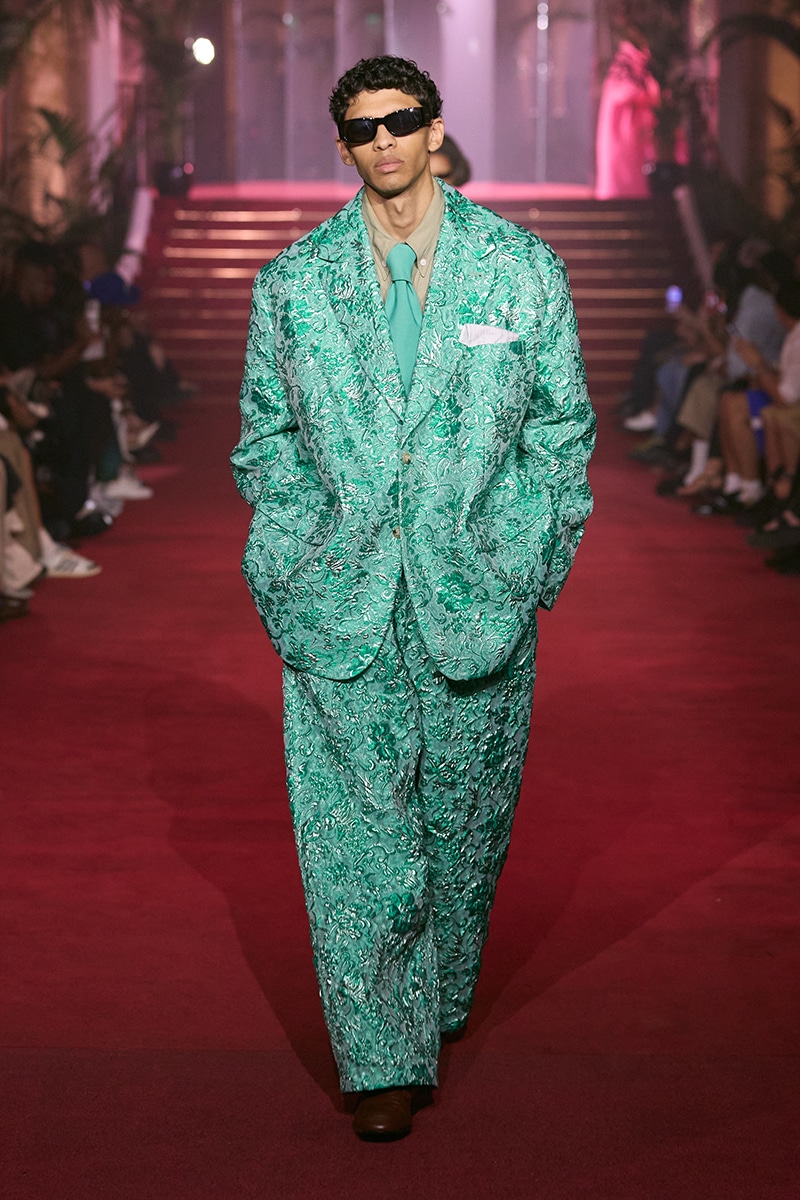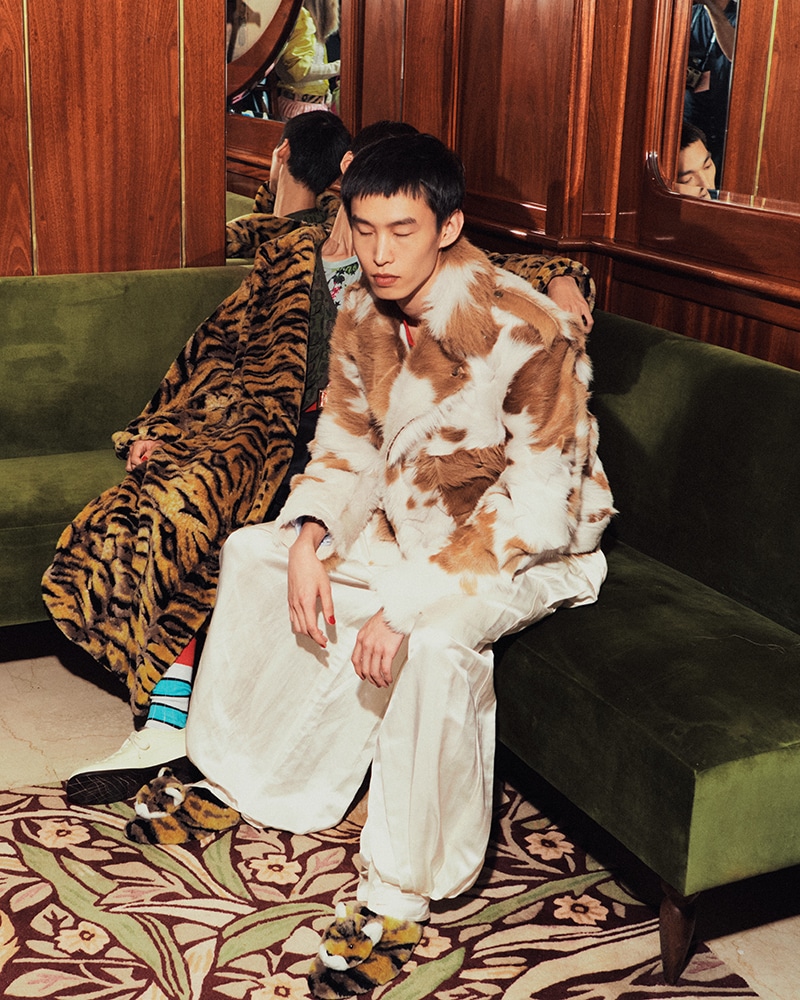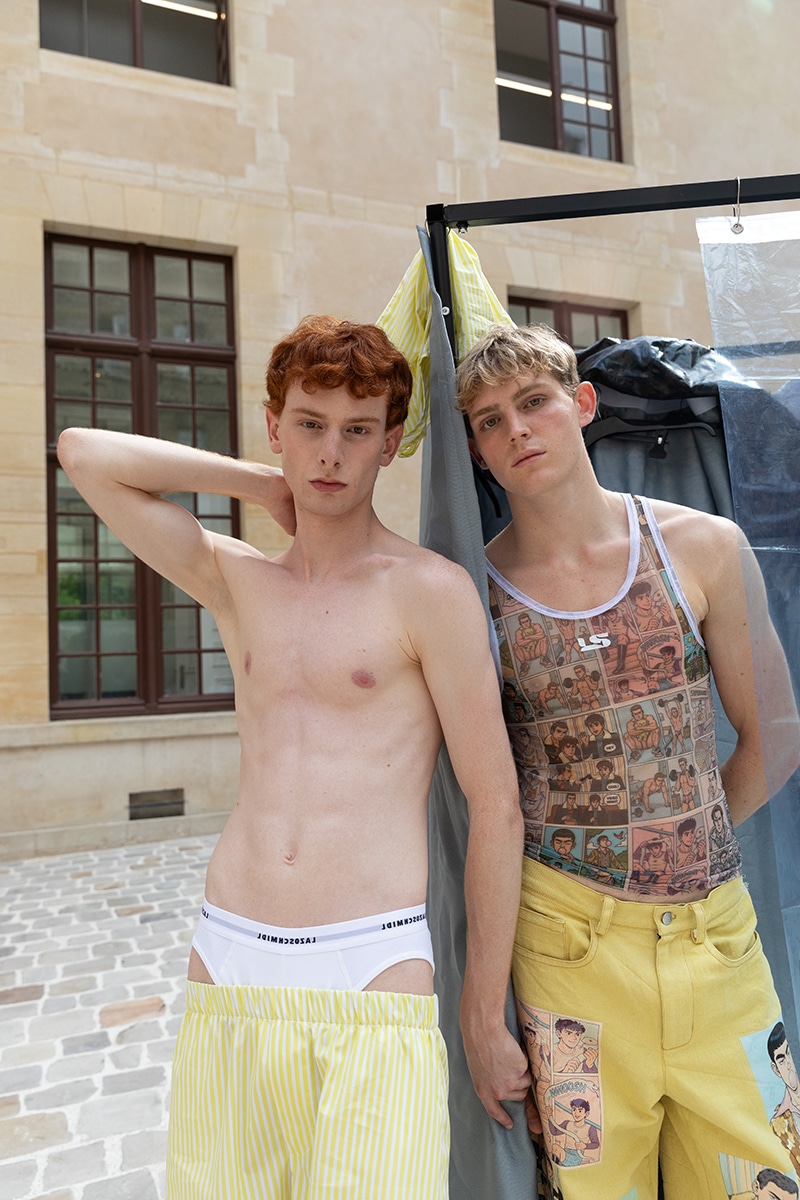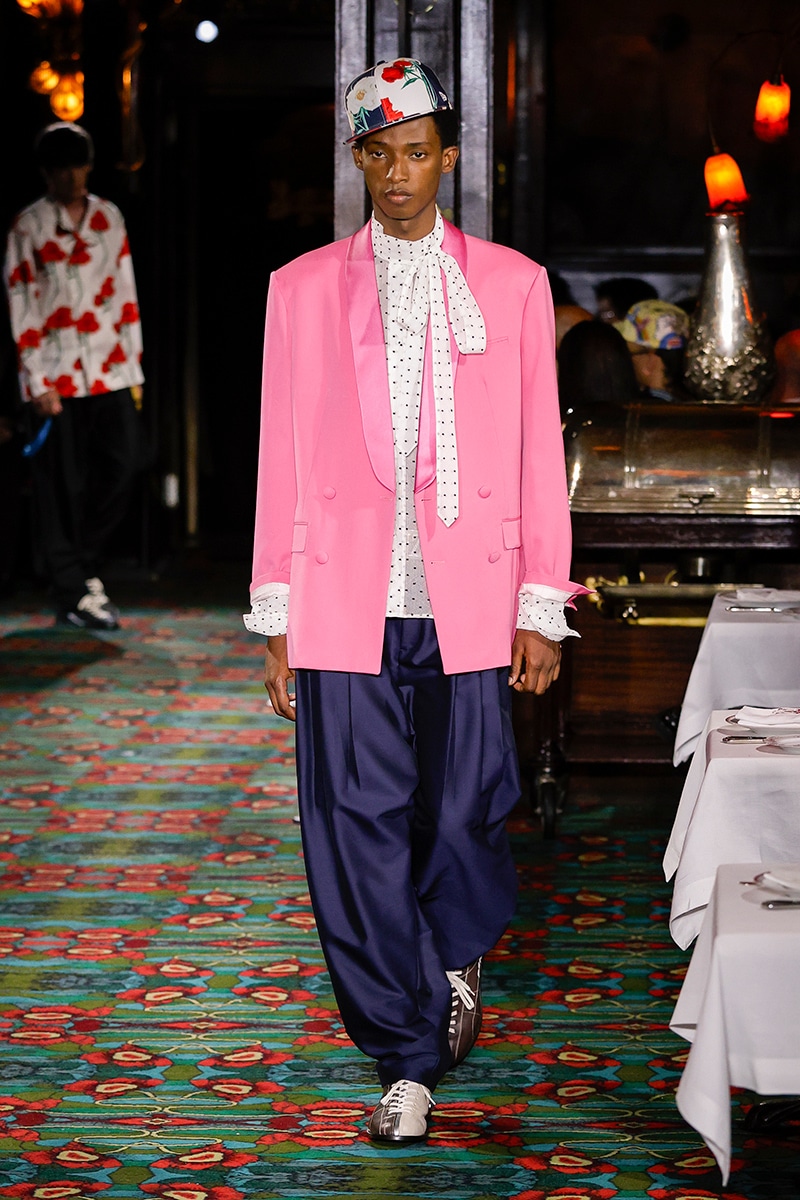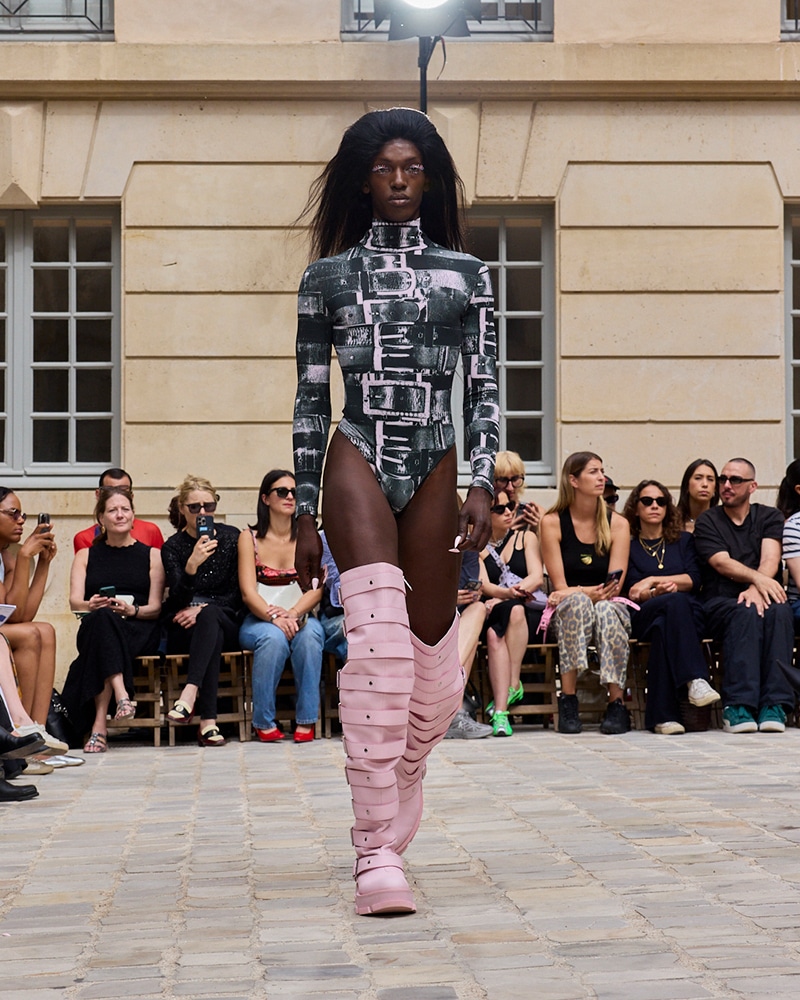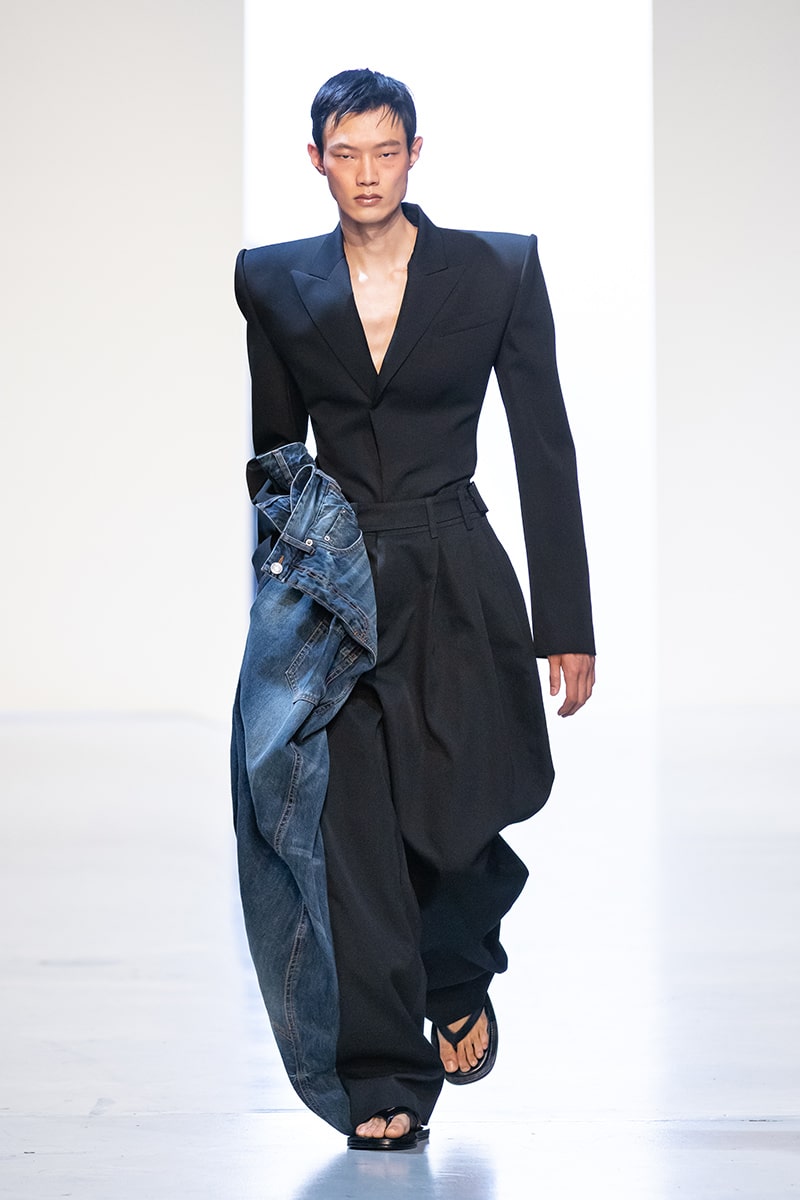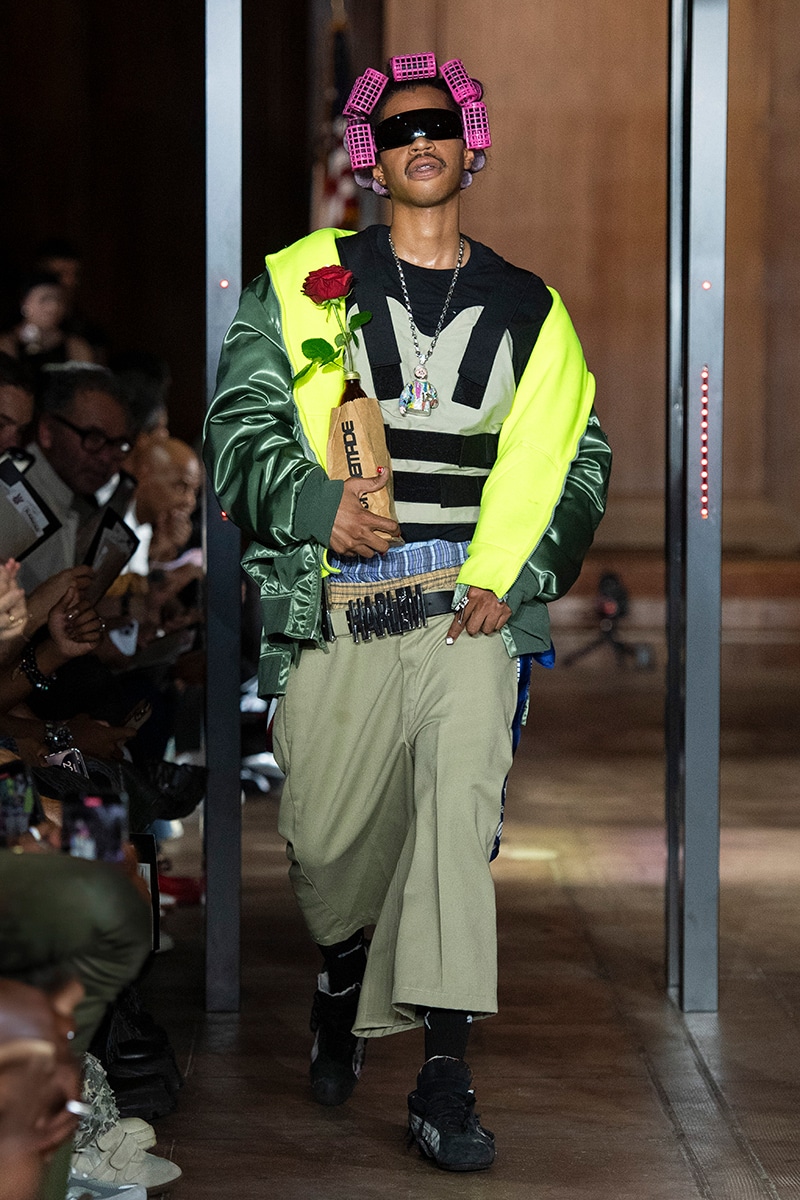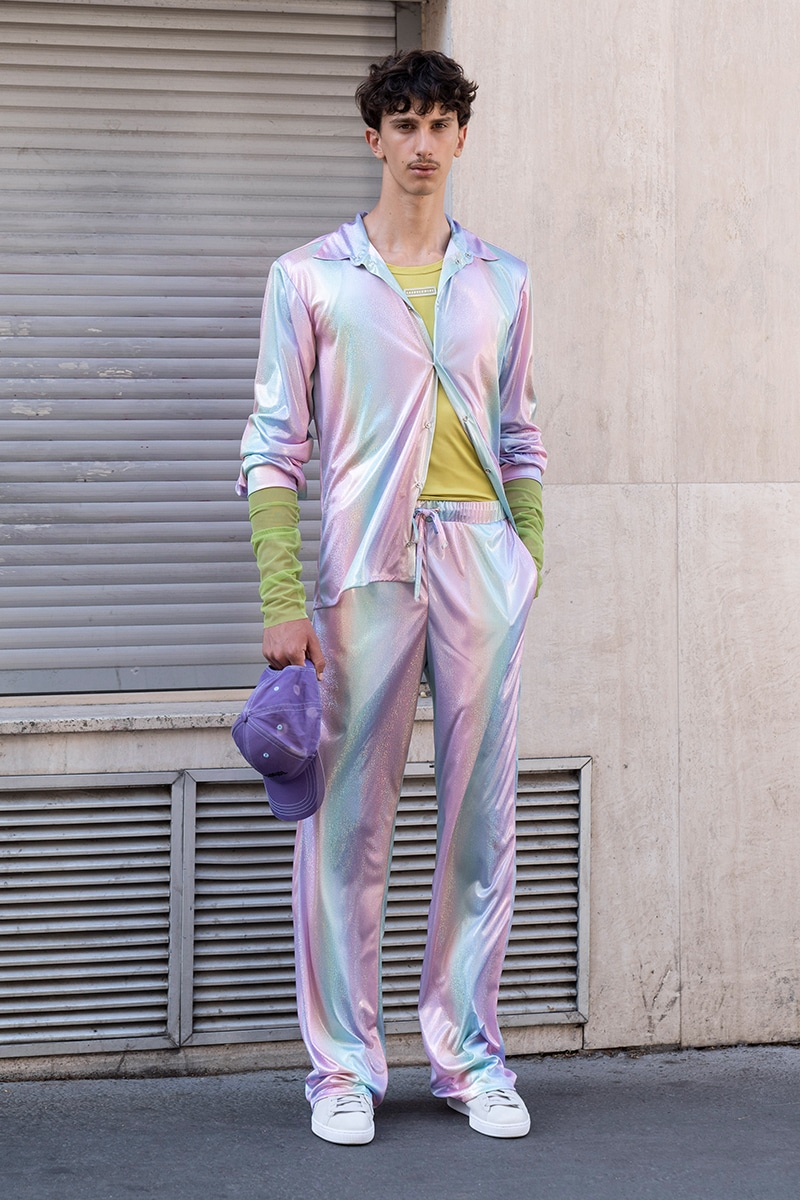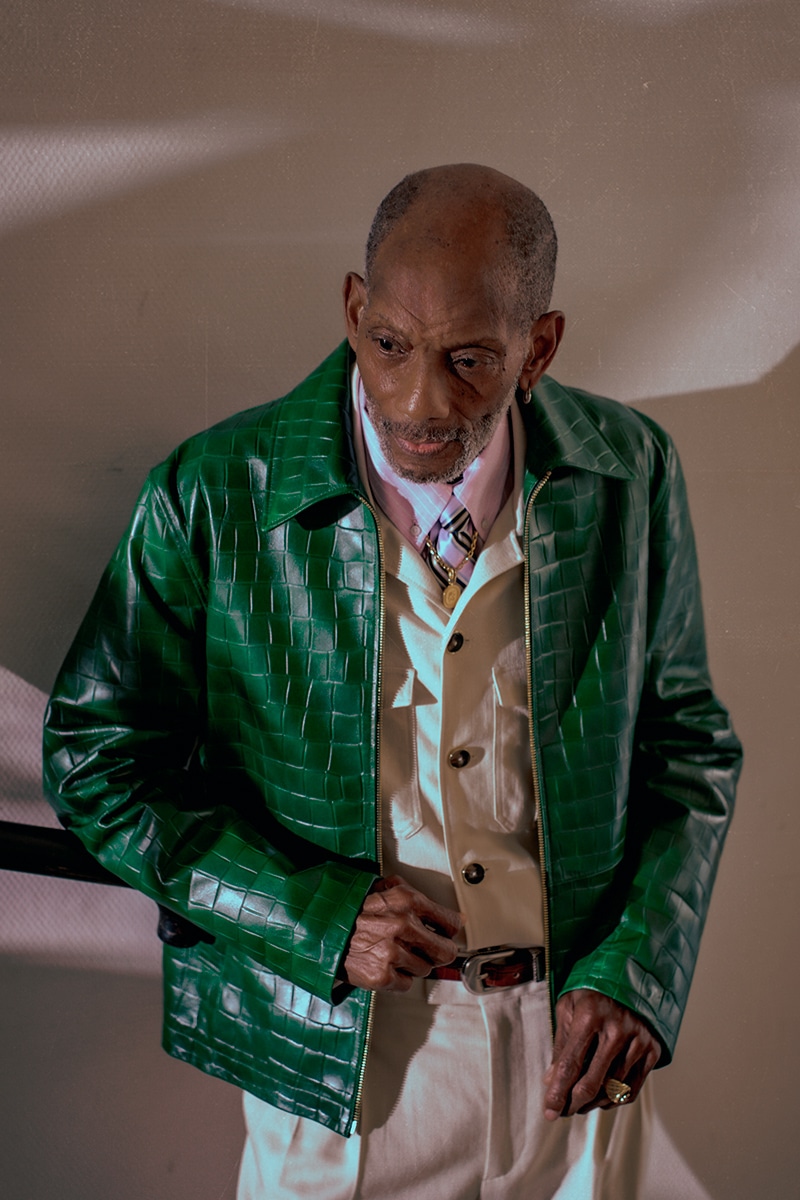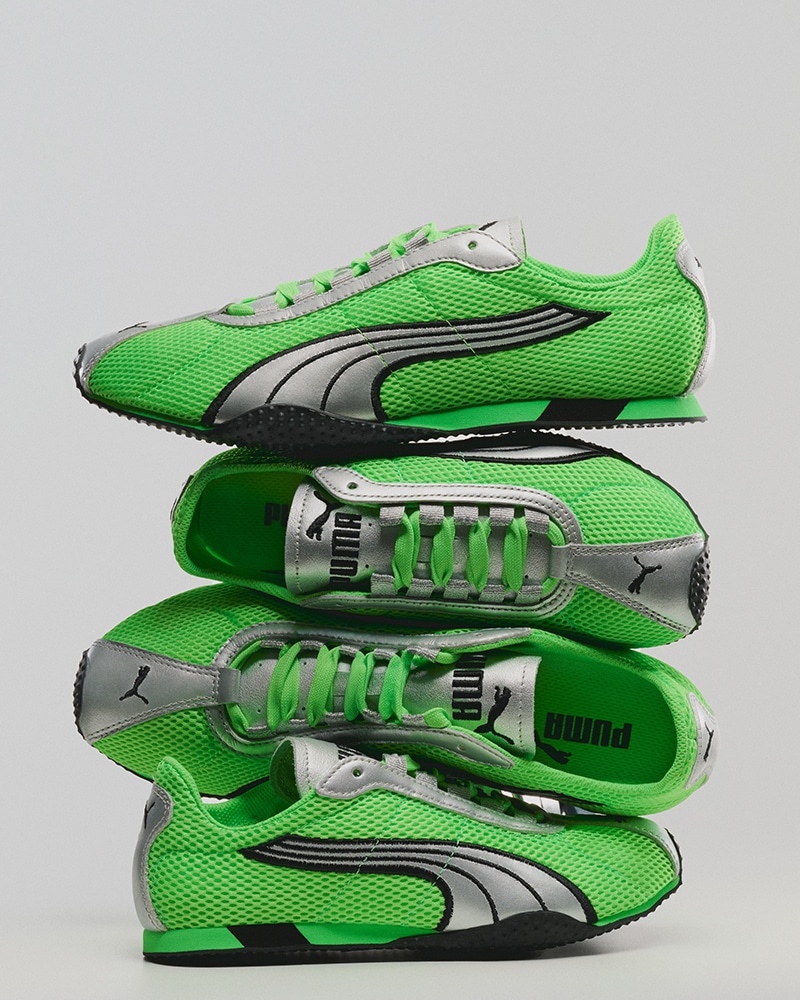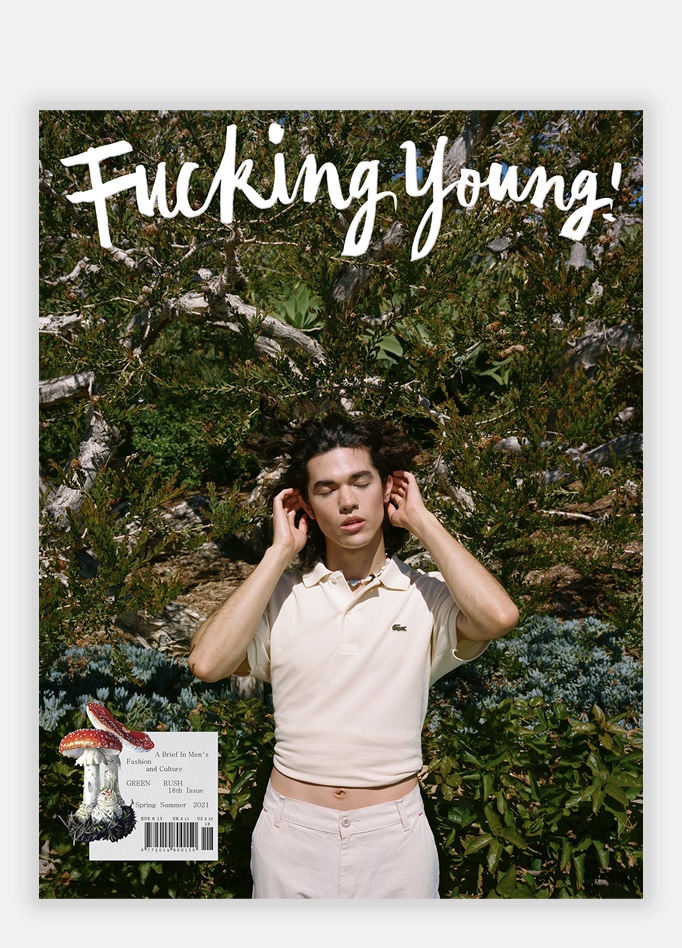South Korea has become the epicenter of cool in recent years with such diverse creatives as BTS to Boon Joon Ho becoming household names. Even now during this COVID-19 era, the medical community is looking at South Korea. Songzio, Juun J and Wooyoungmi are probably some of the names you first think of when you think of menswear hailing from the country. Young N Sang, founded by a designer couple Youngshin and Sanglim, in 2018, wants to put the country on the forefront of sustainability. The brand first garnered attention from a wider audience when it showed during London Fashion Week Men’s back in January. By focusing on experimental fabrication and second-hand clothes, they also have control over their supply chain and protecting it in the future. We caught up with the brand during the lockdown in Korea to discuss current events and looking at the present, not just the future.
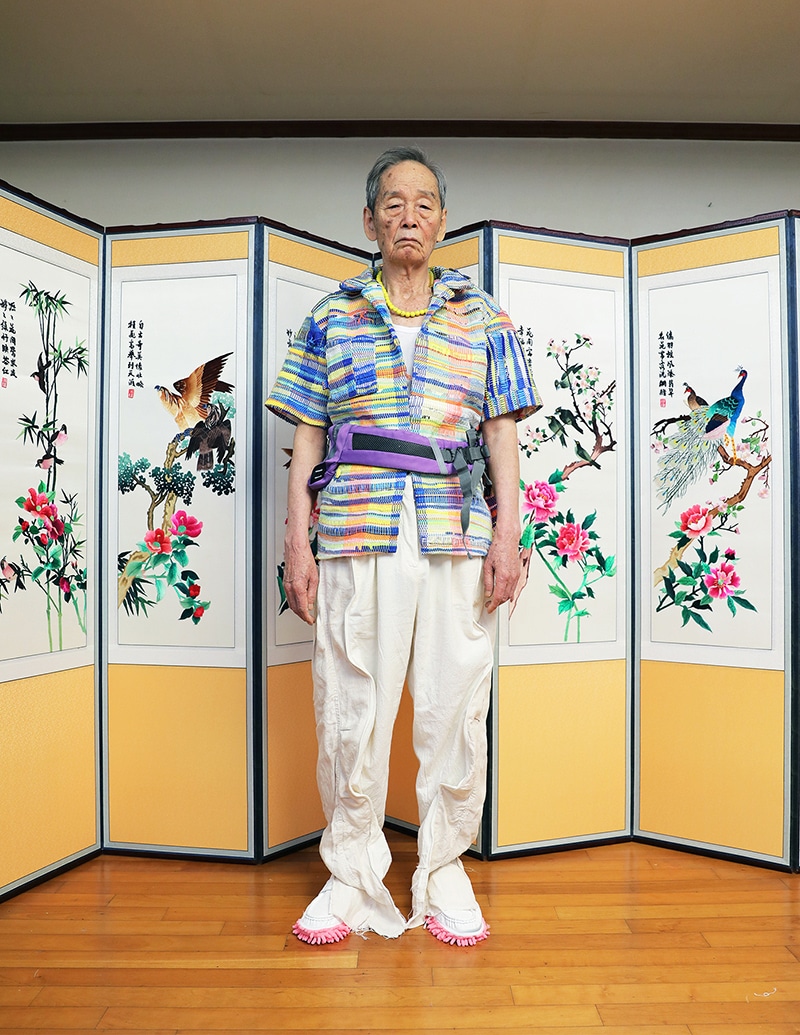
How did you venture into the business?
We, Young and sang, are living in one of the Asian countries called South Korea. It is a well-known fact that all kinds of manufacturer factories are compacted in Asia. Those factories directly cause all types of environmental pollution. Korea has been affected by air pollution. The air pollution became the major cause of illnesses such as Rhinitis and Dermatitis. Many Koreans are currently suffering from that illness. Mask and air cleaner are necessary items for living in Korea.
The fashion industry is a main cause of environmental pollution. As designers in the fashion field, we really felt the responsibility of environmental pollution. It encouraged us to start showing sustainable collections. We, young n sang, are aiming to design zero waste collections by minimizing unnecessary wastes.
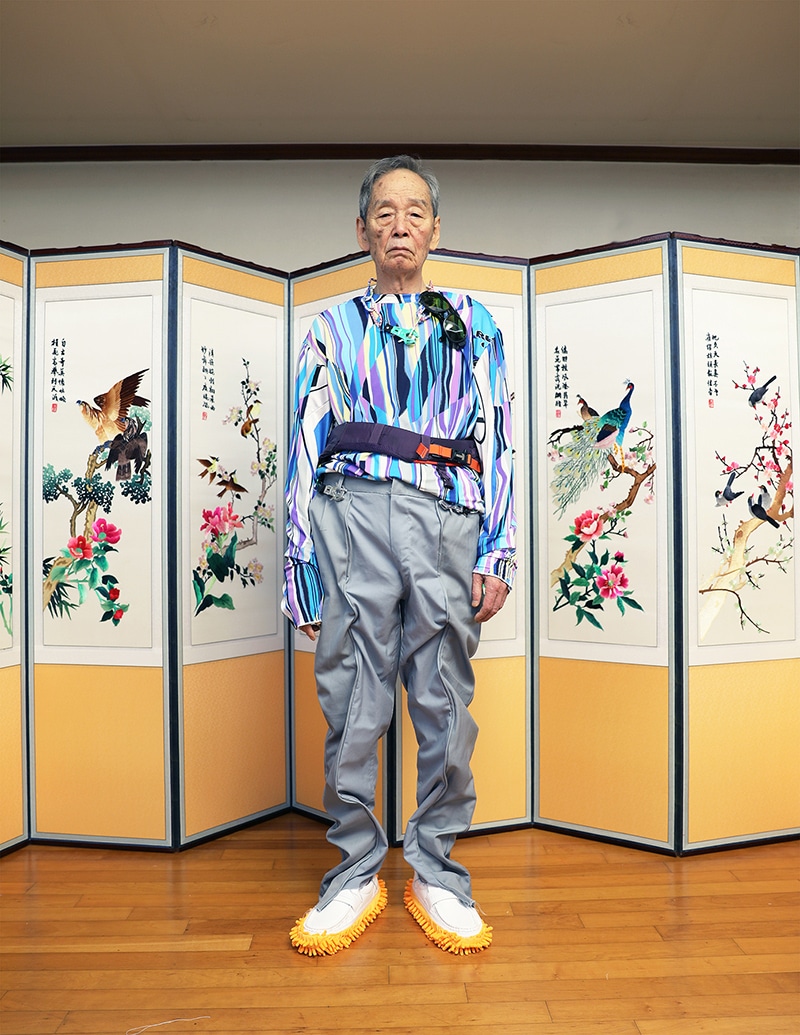
Most importantly, as there have been major changes that evolved the approaches and lanes across the business, how did you “make the cut?”
Being based in Korea, like many other countries in the world, is suffering from coronavirus. All booked face-to-face meetings are replaced by online meetings. We do the whole process (designing, pattern making, production, etc.,) in young n sang atelier because this is the best way to accurately and quickly reflect our ideas into the collection, and to create the best quality of the collection.
Under this COVID-19 situation, this systematical process worked with advantages. If only raw materials are supplied reliably, we have no problems making this system works. Fortunately, the delivery system is well developed in Korea. The materials needed for production can be supplied either one day or the day after. So, there is no big deal in terms of the progression of this system. The reason we can handle the brand well is because there are a fast delivery system and a system that could carry out the whole process on its own.
What drew you to delve into the creative façade of the industry?
We produce handwoven garments by a loom. Handweaving is a traditional way of manufacturing clothes. Currently, only traditional high-end brands like Chanel have maintained this traditional way. This traditional method may in fact not come as attractive as mass production to ordinary brands because of lower output and higher unit prices. However, we believe that this is worth far more attractive than mass production. Even though this traditional method requires a lot of effort and times because it is manual, we can apply creative and diverse techniques into clothes that can keep the brand’s identity and high-end quality.
It’s wonderful to stick to a traditional hand-weaving method that has thousands of years of history. It is a creative and interesting task to create a trendy collection with traditional manufacturing methods handed over from ancestors.
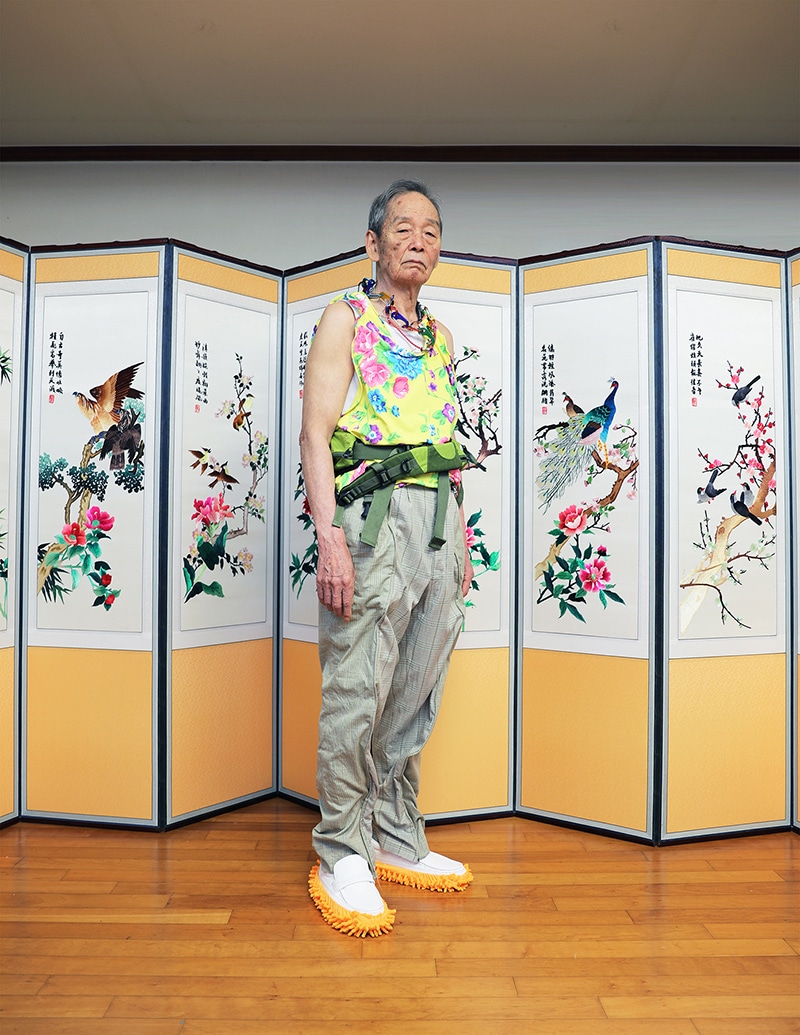
In times of turmoil and global disruption, do you feel fashion is taking the right steps to change for the better?
Fashion trying to take the right steps, but it needs to try harder.
Could we elaborate on the measures that fashion could enact in order to thrive for a much better environment?
Orsola de Castro, the Co-founder of Fashion Revolution, has mentioned that many clothing workers face great difficulties because of COVID-19.
Usually, clothing workers are paid below minimum wage as minors. Usually, companies pay the supplier weeks or months after the product is delivered. This means many factories are paying the initial cost of manufacturing products first. This misplaced system is now causing big problems. Because of current corona-crisis, the companies that placed orders for the products have canceled their orders and have stopped paying even if the products were produced. The unwanted products were destroyed or kept stored by factories, and many workers were laid off due to this situation. This means that the overall system shuts down, and companies are not taking any responsibility for the impacts.
For the workers, what really matters is poverty, not COVID-19. We need to fix this misplaced system. To be prepared for this kind of crisis, companies must pay a reasonable deposit from the time they place an order for products, and companies and factories must create a plan to maintain workers’ lives through paying 80 percent of their wages in case of a disaster. Many companies must realize that the stable lives of their workers must be guaranteed to keep their business in progress.
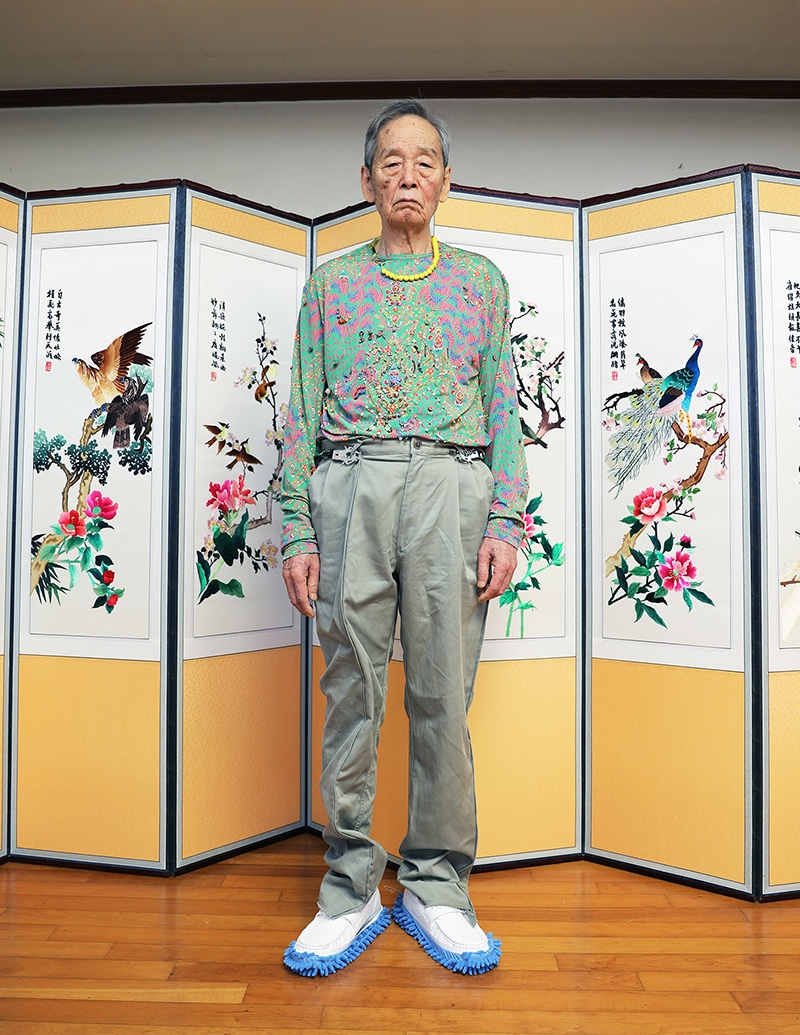
Touching on the cycle of fashion (and its occurrences) – do you believe that the current COVID-19 condition will hinge something revolutionary and trigger a radical scheme of progression?
We think this COVID-19 condition can be a turning point in the fashion industry.
We are all forced to stay at home and rest because of COVID-19. This crisis encourages us to reorganize our lives and think about the future more carefully and wisely. The most serious problem we should deeply consider is potential risks similar to infectious diseases and inevitable environmental pollution. We all must now realize that infectious diseases such as SARS and MERS will be continued to occur in the future, so we should be aware of them all the time. Companies should be able to find errors in their manuals to prepare for potential risks in the future and should be able to overhaul the systems as a whole.
And most of all, this crisis should be an opportunity for us to seriously think about environmental pollution, an important and urgent problem. Realistically, consumers and we should first recognize and act on environmental pollution more seriously than ever before.
Now everyone has a forced break due to COVID-19 and is worried about the dangers of the coming future. So now is the time to better spread these thoughts to other people. Sustainable brands like us have to help consumers to consume more wisely and responsibly through custom-made, high-quality timeless designs, eco-friendly, upcycling, rent, and swap, etc. We believe that this market trend could radically change the direction of blue-chip companies.
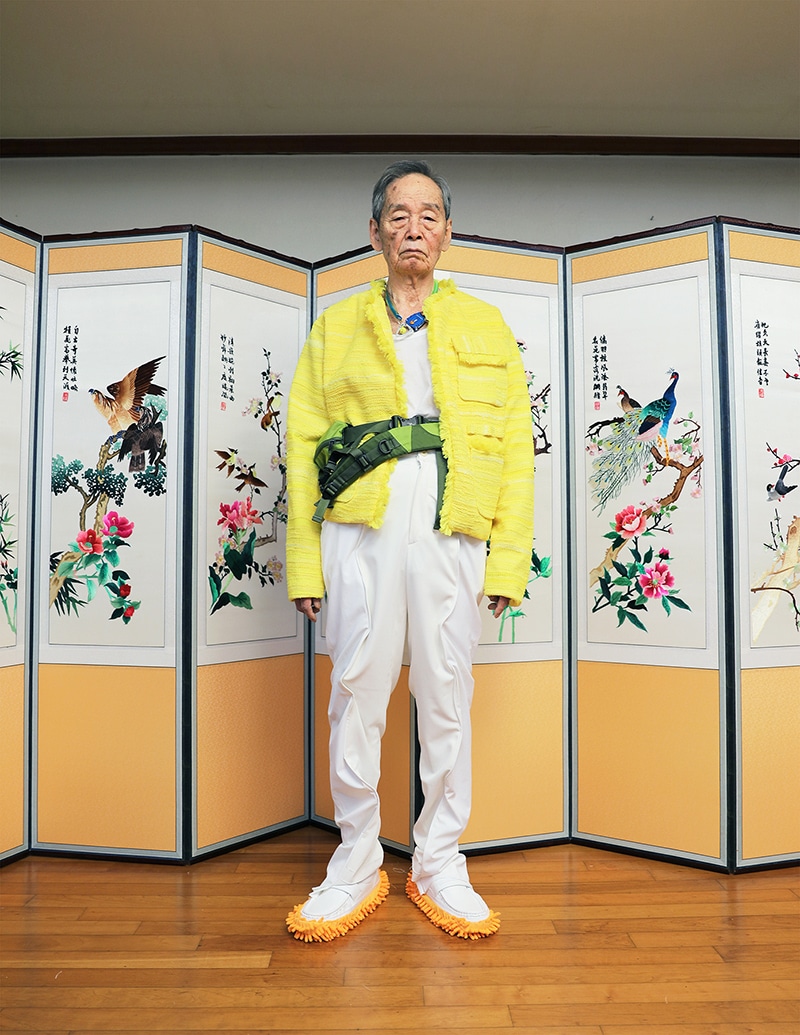
How do you envision the future of fashion, trends and the whole creative avenues?
In the future, trends will be changed according to consumer needs. Until now, fashion companies have been suggesting trends to consumers, but in the future, we think this phenomenon will be changed into vice versa. So we think companies that try to meet consumer needs will survive in the future. To do so, careful and strategic targeting is very important. For example, people who put a value on vegan or environment do not buy clothes that are not compatible with their ideology, no matter how nice those clothes are.
In terms of the Coronavirus pandemic: will it eradicate fast fashion once and for all?
Corona cannot eradicate fast fashion. The only thing that can eradicate fast fashion is changing our consumption culture. Consumers, suppliers, and all of us should be more responsible for what fast fashion will do to us in the future.
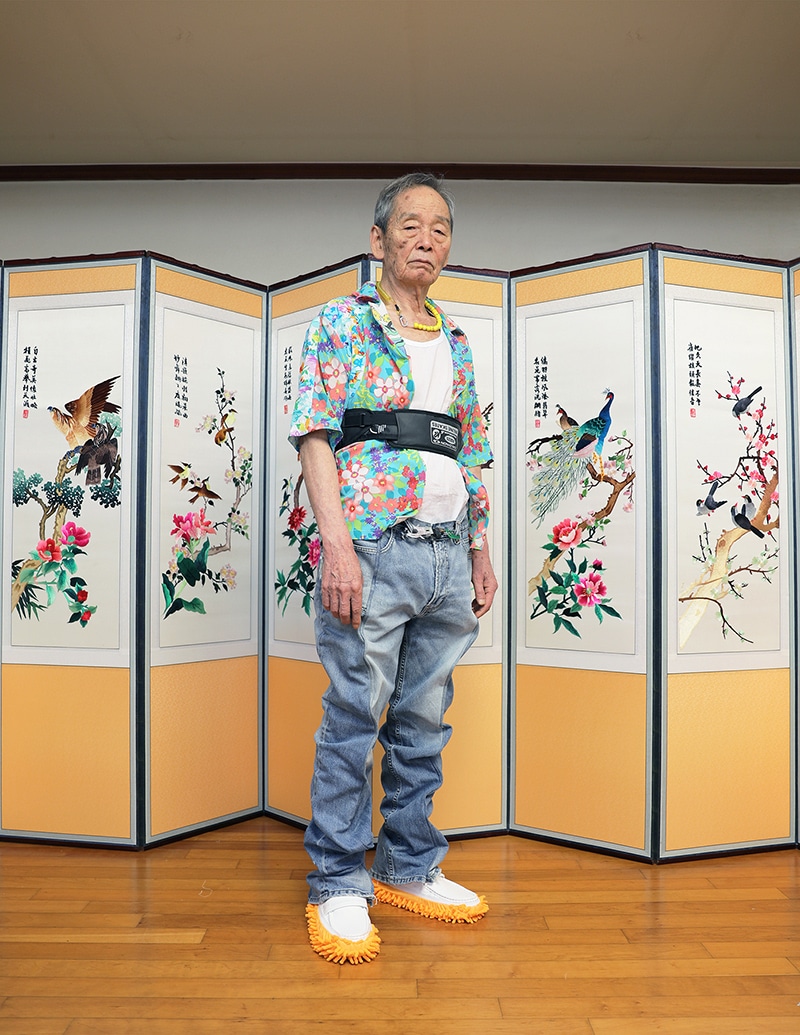
Digging (deep) into the shifts in consumerist culture: what could be the next go-to code of conduct that we will embrace from a global perspective?
Sara Maino, the Deputy Editor in Chief of Value Italia, mentioned that quality should be a priority over quantity in the future.
Blue-chip companies need to realize that such a large amount of production is not necessary. Also, as consumers, we need to aware of the way we consume, and brands, as well as media, need to encourage people to be aware of the place they can live more responsibly and the place they can shop more wisely. Here is a fact that most people haven’t recognized but overlooked: There is no planet B. It is time for us to deeply recognize this fact and act on it.
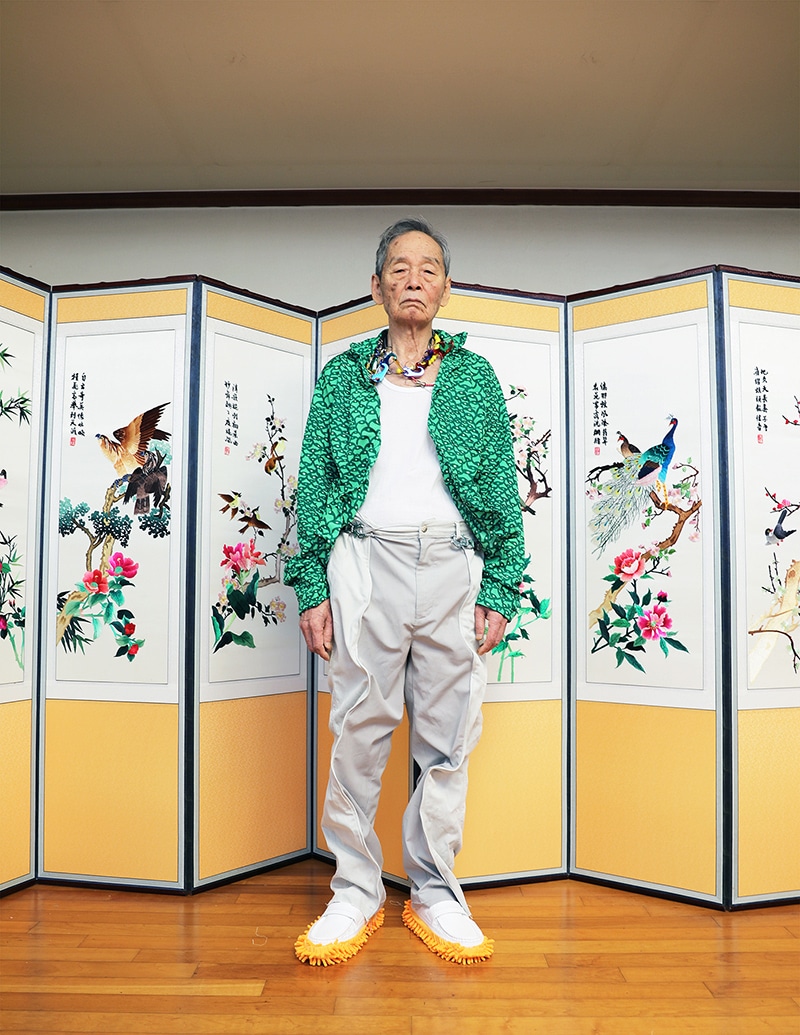
Lastly, as a possible recession might be in the loom, what answers are you expecting the creative industry to be clinging onto post-pandemic?
We are experiencing an unprecedented moment of constraint. We think that potential risks similar to the coronavirus will be continued to occur in the future. Currently, it is mandatory to keep social distancing from people in all places. For this reason, we have been communicating and working with people through online meetings and SNS. This will help industries in various fields realize that going to the workplace may not be an essential factor in terms of working. People’s working methods will be changed through this time. So, many companies will invest in developing software that supports and maintains these innovative methods of work, and many creative companies will emerge from this market.
